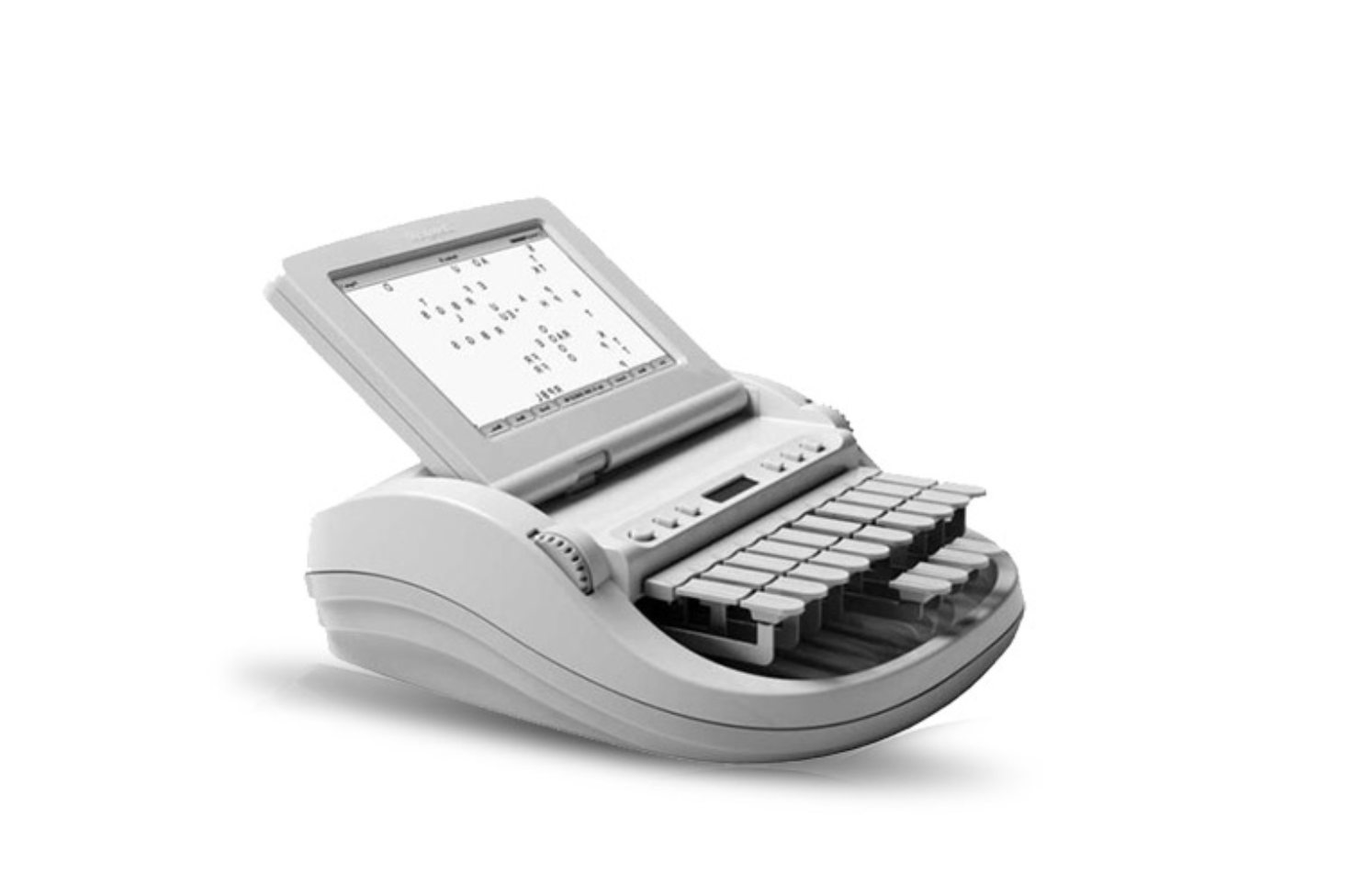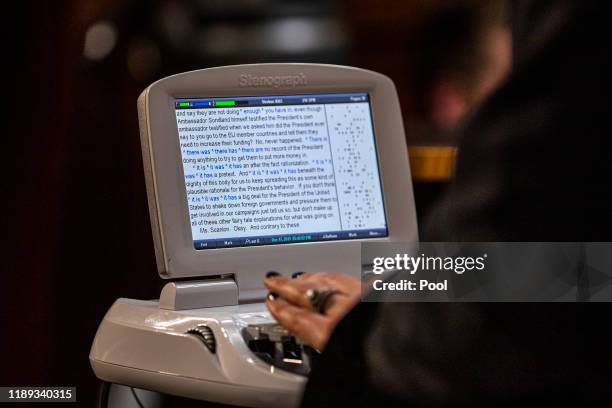Court Typist Training Programs You Should Know About
Court Typist Training Programs You Should Know About
Blog Article
Discover the Necessary Abilities and Responsibilities of a Court Typist in Today's Lawful Landscape
As a court typist, you hold a crucial setting in the legal system. Your abilities exceed simply inputting; they involve recognizing complicated lawful terms and procedures while ensuring precision in every document. You work together very closely with courts and attorneys, making your role crucial for efficient interaction. What specific skills do you need, and exactly how can you adapt to the ever-evolving technical landscape? Let's explore this additionally.
The Function of a Court Typist in the Judicial System
As the foundation of the judicial system, a court typist plays an essential duty in guaranteeing that lawful process are accurately recorded. You are accountable for recording everything from witness testaments to courts' rulings, capturing every detail with precision. Your work helps maintain a irreversible and clear document of court tasks, which is critical for future referral and appeals.In the court room, you're frequently the unrecognized hero, silently guaranteeing that all talked words end up being created records. You keep confidentiality, recognizing the sensitive nature of legal matters. You also team up very closely with legal representatives, staffs, and courts to guarantee the smooth circulation of details. By functioning successfully under stress, you add to the general performance of the judicial process. Your attention to information and dedication to accuracy not just promote the integrity of the court but likewise sustain the wider pursuit of justice in society.
Crucial Abilities Needed for Court Typists
Court typists need an one-of-a-kind mix of skills to master their essential duty within the judicial system. You need to have exceptional inputting skills, frequently achieving rates of 70 words per minute or more. Precision is vital; even a minor mistake can cause considerable misconceptions in legal documents. You'll also require strong attention to information, making sure every word is transcribed correctly.Additionally, excellent business skills are essential for handling multiple cases and files efficiently. Being tech-savvy is vital, as you'll utilize various software application for data processing and file management. Solid communication skills help you interact with judges, legal representatives, and other court personnel effectively.Lastly, a feeling of professionalism and discretion is a must, as you'll handle sensitive information daily. By refining these abilities, you'll be well-prepared to add substantially to the courtroom atmosphere.
Recognizing Legal Terminology and Procedures
As a court typist, you require to grasp essential legal terms and treatments to do your work efficiently. Understanding these principles not just helps you transcribe properly however likewise assures you can adhere to the flow of court process. Let's explore the crucial lawful vocabulary and an introduction of court procedures you must recognize.

Key Legal Terms
Understanding key legal terms is crucial for any person operating in a courtroom atmosphere. You'll frequently experience terms like "plaintiff," which describes the person starting a lawsuit, and "defendant," that replies to the claims. Recognizing the difference in between "civil" and "criminal" instances aids you comprehend the context of the procedures. Familiarity with "subpoena" assurances you understand the lawful papers engaging witnesses to affirm. Furthermore, terms like "evidence" and "testament" are crucial, as they relate straight to the info presented in court. Understanding these terms not just enhances your performance as a court typist yet additionally guarantees that you add to the accuracy and clearness of legal records. Your function rests on accurate terms, so don't take it gently!
Court Procedures Introduction
Knowledge with essential lawful terms sets the phase for comprehending court procedures. Comprehending just how a court room features is essential for any court typist. You'll come across processes like accusations, where defendants hear fees, and motions, which are demands for a court judgment. Familiarize yourself with the roles of clerks, attorneys, and courts, as each plays an essential part in procedures. Recognizing the circulation of a trial-- from court selection to closing disagreements-- aids you properly capture the process - court typist. Furthermore, comprehending the relevance of maintaining a exact and impartial record can not be overemphasized. By mastering these elements, you'll improve your performance in documenting important court tasks and add significantly to the legal process. Your function is important in protecting the honesty of court documents
The Influence of Modern Technology on Court Keying In
Technology's transformed court inputting in considerable ways. With electronic transcription tools, you can boost efficiency and precision, making your job much easier than ever. And also, remote court proceedings have changed just how you approach your job, calling for flexibility to new formats and modern technologies.
Digital Transcription Devices
As electronic transcription devices remain to evolve, they're changing the way court typists do their obligations. These tools simplify the transcription process, permitting you to record spoken words accurately and successfully. With voice recognition software application, you can transcribe real-time process, decreasing hands-on input and reducing errors.Moreover, cloud-based systems allow very easy access to records, so you can work collaboratively with lawful teams and ensure everybody's on the very same page. Automated format functions save you time on recurring tasks, allowing you focus on content quality.Additionally, digital devices enhance check safety and security, securing delicate info via encrypted storage and controlled gain access to. By welcoming these technologies, you can enhance your productivity and preserve the high criteria required in the lawful area.
Remote Court Proceedings
The rise of remote court procedures has considerably transformed the landscape for court typists. You now rely upon technology to record and record live hearings from your home or workplace. Experience with video clip conferencing systems is vital, as you'll need to browse them effortlessly to assure an accurate document. You'll additionally need to take care of audio quality, as background sound or connection issues can disrupt your job. Furthermore, remote process require fast thinking; you may need to make clear declarations or request repeats in real-time. Remaining organized and effective is crucial, as due dates continue to be tight. Embracing these technological developments not only enhances your skills however likewise ensures you continue to be a vital property in today's developing legal atmosphere.
Accuracy and Attention to Detail in Transcription
Accuracy and interest to detail are important in transcription, particularly for court typists. court typist. When you're transcribing legal procedures, every word counts. A single blunder can change the significance of a statement, potentially affecting the outcome of an instance. You must listen thoroughly, guaranteeing that you capture every subtlety and inflection in the speaker's voice.Your ability to capture typos and grammatic errors is essential. You don't simply kind; you confirm that the last file is an exact representation of what was said in court. This requires a keen eye and an extensive understanding of legal terminology.Moreover, you'll require to be knowledgeable about various accents and talking styles, as court rooms can hold a variety of audio speakers. By refining your accuracy and focus to detail, you'll maintain the stability of legal documents and add considerably to the judicial procedure. Your diligence around truly makes a difference

Time Management and Business Abilities
While handling multiple jobs, effective time management and business skills are important for court typists. You'll often juggle numerous due dates, from transcribing court process to preparing legal documents. Prioritizing your work is vital; identify urgent jobs and tackle them first to ensure prompt submissions.Organizational abilities come right into play when you're arranging via situation transcripts, notes, and documents. Keeping whatever nicely classified not just conserves time but additionally minimizes the risk of mistake. Utilizing devices like schedules, to-do checklists, or specialized software program can assist you remain on track and manage your time effectively.Moreover, establishing certain goals for each and every work session can boost your performance. Break bigger projects into smaller tasks to make them a lot more manageable. By refining these skills, you'll not just improve your performance but likewise contribute substantially to the smooth procedure of the lawful process, ensuring everything runs like clockwork.
Continuing Education And Learning and Professional Growth Opportunities
Spending in your skills does not stop with time administration and organization. As a court typist, you'll locate that proceeding education and specialist development are important to remaining affordable in the legal area. Seek workshops or online programs focusing on innovative keying techniques, legal terminology, and transcription software application. These can develop your abilities and aid you adjust to the current technologies.Networking is just as important. Join professional companies like the National Court Reporters Association (NCRA) or neighborhood a knockout post lawful organizations. They frequently use resources, training sessions, and conferences that can enhance your knowledge and link you with peers.Don' t forget certification programs that can increase your reputation and marketability. Staying updated with the current patterns and best methods in legal documents will certainly enhance your performance and precision, making you an important asset to any legal group. Purchase your growth, and you'll gain the rewards throughout your job.
Regularly Asked Inquiries
What Is the Normal Salary Array for a Court Typist?
A court typist's typical income ranges from $30,000 to $55,000 every year, relying on experience and area. You might read this post here likewise discover opportunities for development with added abilities, resulting in enhanced pay in the legal area.

Are Court Typists Required to Have a Lawful Level?
Court typists do not need a lawful degree, yet having one can be beneficial. You'll frequently discover that solid typing skills and knowledge of lawful terms are extra vital for success in this duty.
What Are the Work Hours for a Court Typist?

How Do Court Typists Guarantee Privacy in Their Work?
You guarantee confidentiality by safely dealing with sensitive records, making use of encrypted software application, and adhering to stringent procedures. You remain familiar with personal privacy legislations and only share info with licensed personnel, keeping count on the judicial procedure.
Can Court Typists Job From Another Location or Freelance?
Yes, you can work remotely or freelance as a court typist, particularly if you have reputable innovation and a safe setting. Lots of attorneys now accept remote job, using versatility and possibilities for independent typists. As the backbone of the judicial system, a court typist plays a necessary function in guaranteeing that legal process are accurately recorded. As a court typist, you need to comprehend key lawful terms and treatments to do your job efficiently. Understanding these terms not only enhances your performance as a court typist however likewise assures that you add to the accuracy and quality of legal records. The surge of remote court procedures has actually greatly altered the landscape for court typists. As a court typist, you'll locate that proceeding education and expert development are essential to staying affordable in the legal area.
Report this page